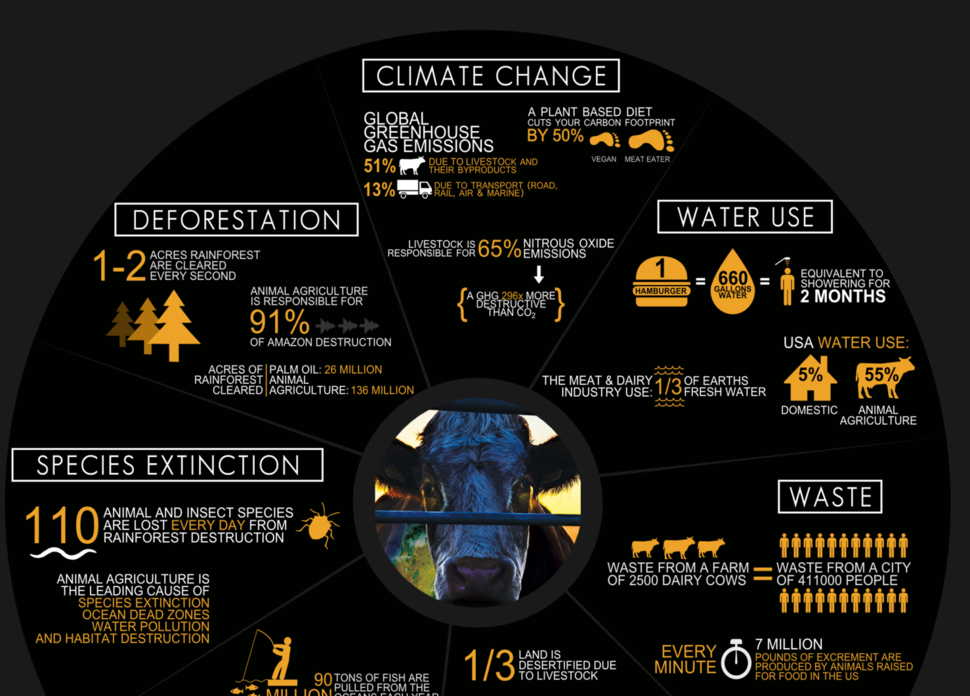Picture [4]
At Sinterklaas evening, my sister-in-law told me about the environmental documentary Cowspiracy. Filmmaker Kip Andersen (kip means chicken in Dutch, funny!) uncovers the destructiveness of the meat industry and investigates why nobody talks about it.
To mention some numbers, “livestock and their byproducts account for at least 32,000 million tons of carbon dioxide (CO2) per year, or 51% of all worldwide greenhouse gas emissions (GHG)”. This is more than the transportation industry. Even, methane emissions from US livestock equal that of natural gas. Thus, animal agriculture causes extreme pollution, has enormous water consumption, causes huge deforestation and much more. [1] In the future, emissions for agriculture projected to increase 80% by 2050, whereas energy related emissions expected to increase 20% by 2040.[1]
These number surprised me. I consider myself an involved consumer who is concerned with the impact of her lifestyle on the earth. However, I had never heard such strong arguments for not eating meat. How come?
The lobby from the meat industry is so strong that no influential people take the risk of addressing this topic. Non-influential people are not aware of the facts, since they are kept into the dark. Andersen discovered this intentional refusal of uncovering the above knowledge from leaders in the environmental movement. The risk is so high, he is warned of the risks for his life, if he dares persisting his research and documentary. [2]
This made me curious whether the meat industry was mentioned in the COP21 agreement in Paris. Do they mention anything about the need to reduce GHG emissions from the meat industry? NO! In fact, they turn the argument around by saying that reduction of GHG emissions should “not threaten food production”. [3]
On a global level, GHG emissions from the meat industry are not addressed. Hence, it is our job as citizens to start this movement towards a less meat consuming society. For example, a plant-based diet (vegan) cuts your carbon footprint by 50% [4]. Personally, I made a start by becoming flexitarian, meaning that I buy nor choose meat no more. As the infographic by Cowspiracy encourages us:
“We can make a difference, simply by eating less animal products and replacing them with plants” [4, italics added].
Literature
[1] www.cowspiracy.com/facts, visited on 15 December 2015
[2] www.cowspiracy.com/about, visited on 15 December 2015
[3] United Nations Framework Conventions on Climate Change, (12 December 2015). Adoption of the Paris Agreement – 2015/L.9/Rev.1. Conference of the Parties 21, Paris.
[4] www.cowspiracy.com/infographic, visited on 15 December 2015
